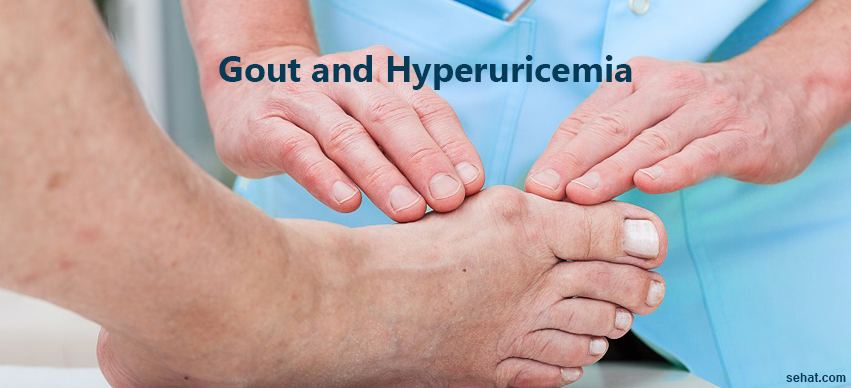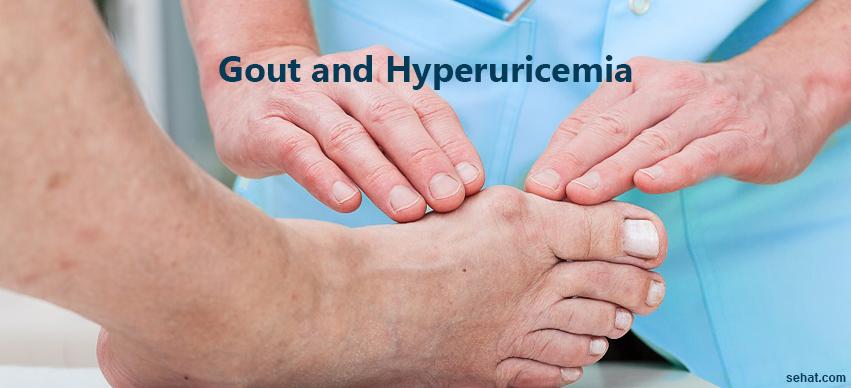Evolution of Prescription Refills: From In-Person to Online ..
6 Min Read


Gout is a painful form of arthritis that occurs when high levels of uric acid accumulate in the body. Increased uric acid levels in the body leads to formation of sharp uric acid crystals in joints. In most people, the first gout attack occurs in the big toe. Gout attacks can wake a patient from sleep and he/she can experience excruciating pain, swelling, redness, heat and stiffness of joints. Some other body parts that can be affected by gout are - insteps, ankles, heels, knees, wrists, fingers and elbows.
Uric acid is a waste product that is created when the body breaks down substances known as purines that are found in certain foods and drinks. Uric acid in found in certain vegetables, fishes, organ meat and alcohol. Most of the uric acid in blood travels to the kidneys and passes out through urine. But, if your body produces too much uric acid or is not able to remove it properly then it can lead to various disorders. A high uric acid level in the blood is called Hyperuricemia.
One of the major side effects of too much uric acid in the system is gout. Animal-based proteins in a person's diet leads to production of uric acid through break down of purines. When this excess uric acid is not removed by the kidneys it forms crystals at the joints of hands and feet. The sharp edges of the crystals press against the tender tissues causing unbearable pain, inflammation and swelling. This condition is also known as gouty arthritis.
A diet rich in animal proteins may not be properly metabolized by the body which can result in an abundance of uric acid in blood. If excess uric acid cannot be excreted by the body then it can lead to a condition called metabolic acidosis. Metabolic acidosis is marked by rapid breathing, confusion and lethargy and in serious cases it can lead to shock and death.
Excess uric acid in the urine can lead to the formation of kidney stones. It is a condition in which the uric acid crystallizes in the kidneys and is deposited in organ, forming various sized stones which can vary in size from grains of sand to large chunks. These stones can block the ureters and cause extreme pain.
Gout can occur if uric acid levels increases in the blood or if the kidneys cannot remove uric acid from the blood efficiently. Certain foods and drugs can also increase uric acid levels in the blood that can lead to gout episodes. Some of the factors that cause gout attacks are as follows:
The common symptoms of gout include:
The diagnosis of gout depends on the symptoms of the patient along with the analysis of his/her medical history, family history of gout.
Treatment for gout is divided in to two parts - treatment of acute gout attacks and removing excess uric acid from blood.
Nonsteroidal antiâ€inflammatory drugs, commonly known as NSAIDs help to reduce inflammation and pain in the joints and tissues and work as an effective treatment for gout attacks. High doses of short-acting NSAIDs provide fastest relief from the symptoms of gout attack. But these medicines have some side effects such as stomach upset, diarrhea and ulcers. NSAIDs are not prescribed to patients who have ulcer disease, impaired kidney functions or use blood thinners. Corticosteroids are useful substitutes for patients who cannot take NSAIDs.
The long term treatment to relieve gout attacks is to reduce uric acid levels in the blood with the help of medicines. These medicines do not help to subdue the painful flares of acute gout, but taking them over a long term can reduce uric acid and bring back the levels to normal. These drugs also block the production of uric acid. Probenecid aids the kidneys to remove uric acid from blood while Pegloticase injections break down uric acid. This drug is specifically intended for patients who do not respond to other treatments.
Gout flares can often occur when a patient starts taking medications from the first time. Therefore, doctors often begin with a low preventive dose and then increase the dose after the first six months. Once the uric acid levels drop below 6mg/dL (normal level) the uric acid crystals start dissolving and new deposits of crystals are prevented.
But the treatment choice of Gout completely depends on an individual’s kidney functions, other health problems and test results. Therefore, what works for one person may or may not work for another. So, if you are troubled by painful Gout attacks and suffering from high uric acid levels then get in touch with a rheumatologist immediately and get relief from this painful condition.
If you are in search of an experienced Rheumatologist in Bhubaneswar then you can contact Dr. Jyoti Ranjan Parida, Rheumatologist, Bhubaneswar, a consultant Rheumatologist specializing in Rheumatology and Immunology.